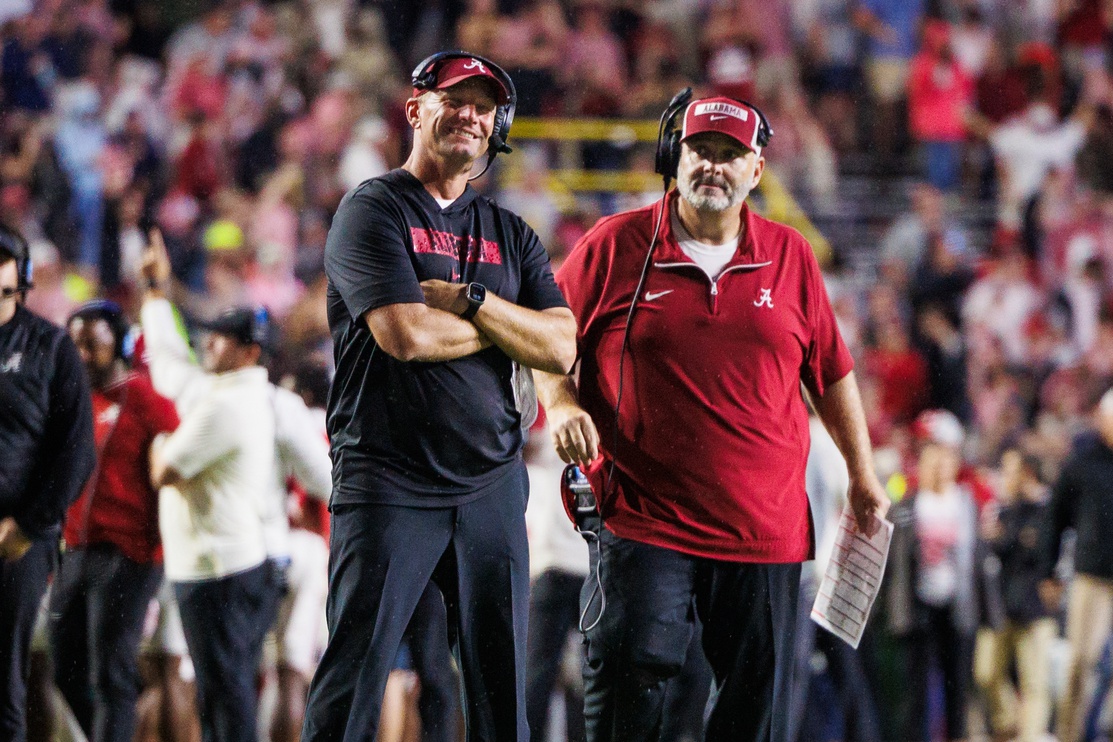Amid NIL deals taking over the college football landscape, Alabama Crimson Tide Head Coach Kalen DeBoer is optimistic about his team’s new opportunities. The landmark House vs. NCAA settlement promises a hefty $20.5 million for schools to split among their programs and athletes this fall.
To supervise this revenue-sharing, a regulatory committee has been set up to look after the legality and enforcement of the rules while institutions split the money. In a recent interview with On3, DeBoer revealed his feelings on the new system.

Kalen DeBoer Makes Remarks About Revenue-Sharing Regulations
In an interview with On3’s Pete Nakos, the Alabama head coach revealed that he thinks it is a massive step towards recruiting and ending inflated collectives that are jeopardizing the current system.
Alabama is coming off a 9-4 first season under DeBoer—a stark difference to a team that rarely won fewer than 10 games in a season under the legendary Nick Saban.
Still, he believes that this revenue-sharing model will balance the sport and put the Crimson Tide back in contention for a national title by allowing recruiting to be more focused on coaching and less on massive NIL paydays.
CONTINUED CRIMSON COVERAGE: ALABAMA DRAFT PROSPECT PRAISES DEBOER
While ‘Bama is a culturally rich university with a strong alumni base, the Yea Alabama NIL collective functions with a limited fund, unlike booster powerhouses like Ohio State, Georgia, Texas, and Miami.
DeBoer also mentioned that the new regulation will enhance transparency.
“The regulation is really important to the game itself,” the coach told On3. “That regulation where we’re all on an even playing field from the revenue-sharing standpoint helps us, just because now it comes down to what is important in recruiting—and that’s relationships and sharing your vision,” he explained.
“People that want to be aligned with your vision—and then come to a place like Alabama that has the resources, the tradition—the regulation and having a more balanced playing field help our situation. It allows us to get where it was at one point just a few years ago. Where recruiting was ‘real’ recruiting—not just someone who’s gonna put in the highest bid,” he added.
According to the settlement, each school will receive approximately $20.5 million every year, which will be shared with different athletic programs. Almost $15 million will be shared with football programs, which will throttle the recruiting. Any violations would lead to suspensions and hefty fines.
College Sports Network has you covered with the latest news, analysis, insights, and trending stories in football, basketball, and more!

